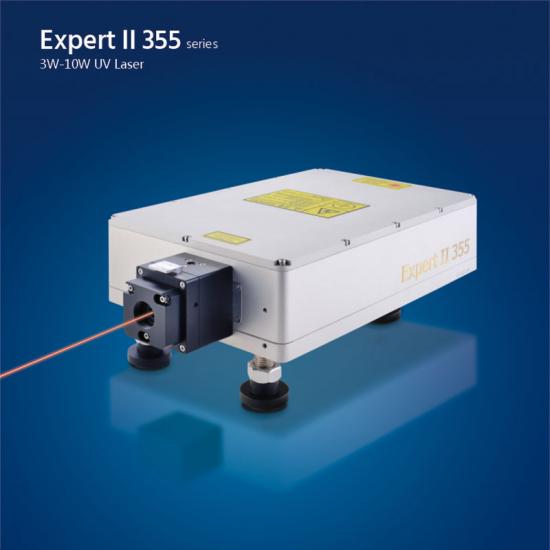Neuester Blog
Analyse der Vorteile in der 3-W-UV-Lasermarkierungs-Leiterplattenindustrie
Oct 09 , 2021
Laser marking is a very advanced marking technology. Through the focused laser engraving technology, the characters and patterns that need to be marked are engraved on the surface of the object. Compared with traditional printing technology, laser marking has the characteristics of good quality, high consistency, strong wear resistance, high efficiency, cost saving, safety and reliability, etc., and it is widely used in the PCB industry.
Market demand under technological progress
With the rapid development of the IT industry, smart phones, wearable electronics and other products continue to develop towards lightness, thinness and miniaturization. Consumers have higher and higher requirements for electronic products, and the production of PCB boards must also be improved. In order to achieve the quality control of the PCB production process, marking characters, one-dimensional codes, two-dimensional codes and other information on the PCB for traceability has become the development trend of the industry.
Traditional printing technology is increasingly unable to adapt to the new market technology needs due to problems such as poor wear resistance, low precision, poor aesthetics, and environmental pollution. Therefore, laser marking has become a trend in the PCB industry.

uv laser | green laser | Ultraviolet lasers | uv dpss laser | nanosecond laser | UV laser source | Solid State Lasers
The defects of traditional printing technology
Marking on the surface of the PCB board like pattern drawing, company LOGO printing, contact information, two-dimensional code, etc., in the past, silk screen printing in traditional printing was usually used. Under the original market demand, traditional printing technology can also meet the requirements of the market. However, as the quality of electronic products continues to improve, consumers' requirements are getting higher and higher, resulting in higher and higher marking quality of PCB boards in the market. Traditional printing Technology cannot adapt to new market requirements, and its shortcomings are becoming more and more obvious, such as:
1. Poor abrasion resistance. The abrasion resistance mentioned here is not the abrasion resistance of metal materials. It refers to the situation that the ink on the PCB surface is often worn away during use, resulting in blurring and discoloration.
2. Aesthetic requirements, the appearance of metal surface printing is relatively low-end, which is not suitable for some products with high appearance requirements, such as medals, metal business cards, exquisite company publicity nameplates, handicraft description nameplates, etc. Meet its appearance requirements.
3. In the ordinary printing process, organic solvents and heavy metal elements and other chemical raw materials are needed. These substances are toxic and can cause personal injury to the screen printing staff. In addition, during the drying process of the screen printing ink, the volatile chemical raw materials gradually volatilize into the air. , Pollution to the air and the environment.
Unique advantages of uv laser marking
The emergence of laser marking technology has successfully solved a series of problems in traditional printing technology. It is characterized by high marking accuracy, fast speed and stable performance. And it only needs to be controlled by a computer, the operation is simple, and it can print a variety of complex patterns, text, two-dimensional codes and other content, which fully meets the high-quality marking requirements of the existing PCB industry. Compared with traditional printing technology, laser marking technology has many advantages:
1. Good quality and strong wear resistance. The marking on the surface of the PCB board is clear and beautiful, and various LOGO, patterns, two-dimensional codes, and text can be marked, and the patterns are directly engraved on the material, which has more outstanding abrasion resistance;
2. Hohe Verarbeitungsgenauigkeit. Nachdem der vom Laser emittierte Laserstrahl fokussiert wurde, kann der minimale Punktdurchmesser 10 um (UV-Laser) erreichen, was bei komplexen Grafiken und Präzisionsbearbeitungen eine große Hilfe ist;
3. Hohe Effizienz, einfache Bedienung und geringere Kosten. Der Benutzer muss nur die Parameter am Computer einstellen, um direkt zu markieren, und die Oberflächenmarkierung des Materials kann in nur wenigen Sekunden bis zehn Sekunden abgeschlossen sein.
4. Zerstörungsfreie Markierung. Die Lasermarkierung verwendet eine berührungslose Verarbeitung, der Laserkopf muss die Oberfläche des Materials nicht berühren, sodass eine Beschädigung des Materials nicht berücksichtigt werden muss.
5. Breites Anwendungsspektrum, Sicherheit und Umweltschutz. Alle Arten von dünnen metallischen/nichtmetallischen Materialien können markiert werden;
6. Stabile Leistung und lange Lebensdauer der Ausrüstung. Mit der Entwicklung der Technologie wurde die Lebensdauer von Lasern stark erhöht und die Lebensdauer von Geräten erheblich verlängert.
Anwendung der UV-Lasermarkierungs- und CO2-Lasermarkierungstechnologie in der Leiterplattenindustrie
Bei der Lasermarkierung von Leiterplatten werden UV-Lasermarkierung und CO2-Lasermarkierung am häufigsten verwendet. UV-Lasermarkierung und CO2-Lasermarkierung haben sich aufgrund ihrer geringen thermischen Belastung, guten Verarbeitungswirkung, hohen Präzision und hohen Geschwindigkeit zur bevorzugten Technologie für die Oberflächenmarkierung von Leiterplatten entwickelt.
Die PCB-Industrie verwendet zweidimensionale Code-Technologie zur Lasermarkierung, die die Rückverfolgbarkeit von PCB-Produktion, Prozessen und Qualität sowie automatische und intelligente Managementanforderungen realisieren kann, um den Anforderungen einer schlanken Produktion, Qualitätskontrolle und Prozessverbesserung gerecht zu werden. Das Markieren von zweidimensionalen Codes auf der Leiterplattenoberfläche ist derzeit eine häufige Forderung von Mid- bis High-End-Kunden und wurde weit verbreitet.